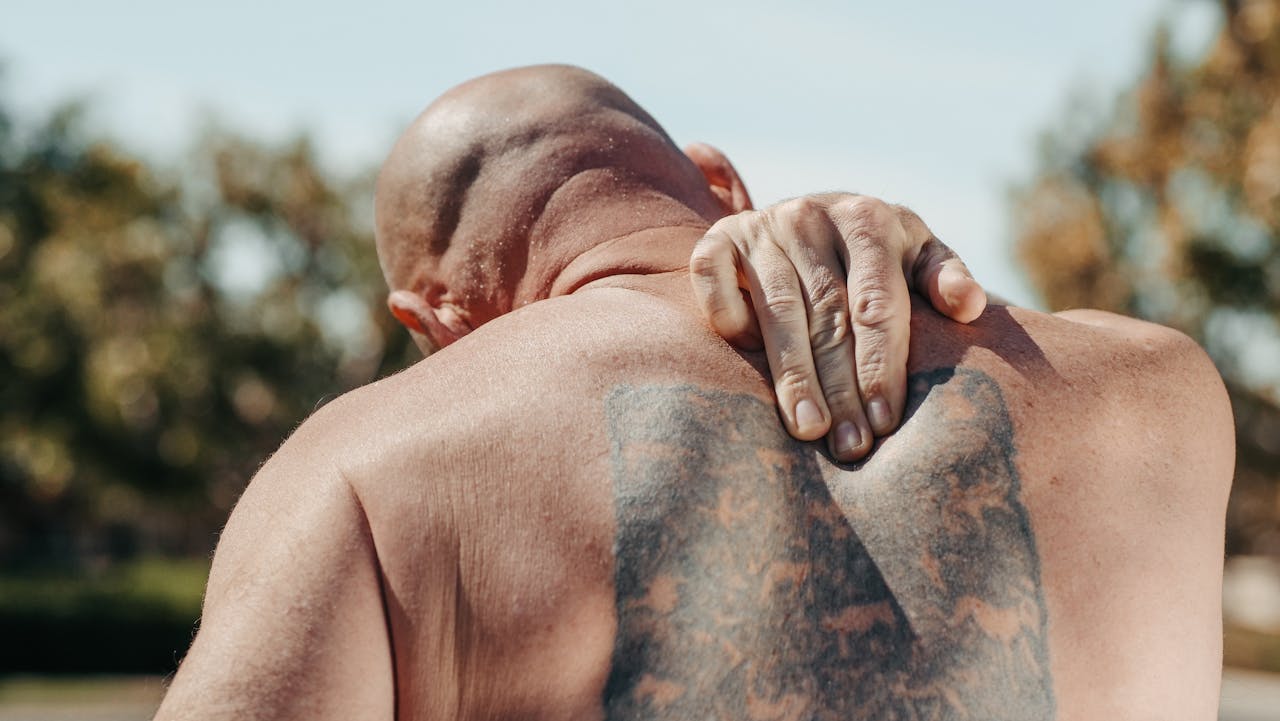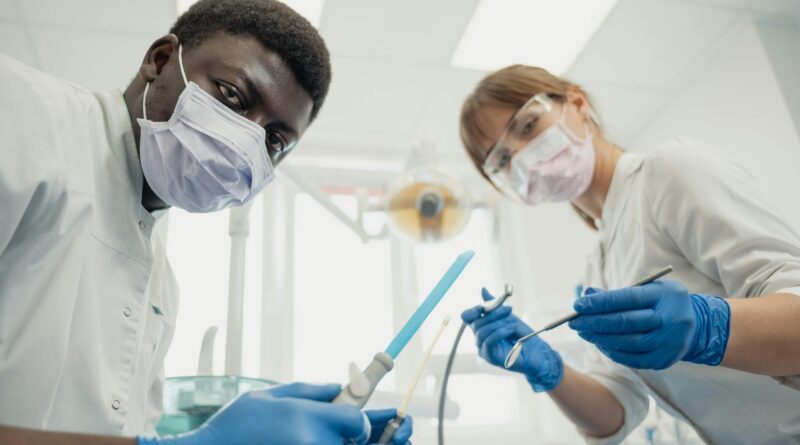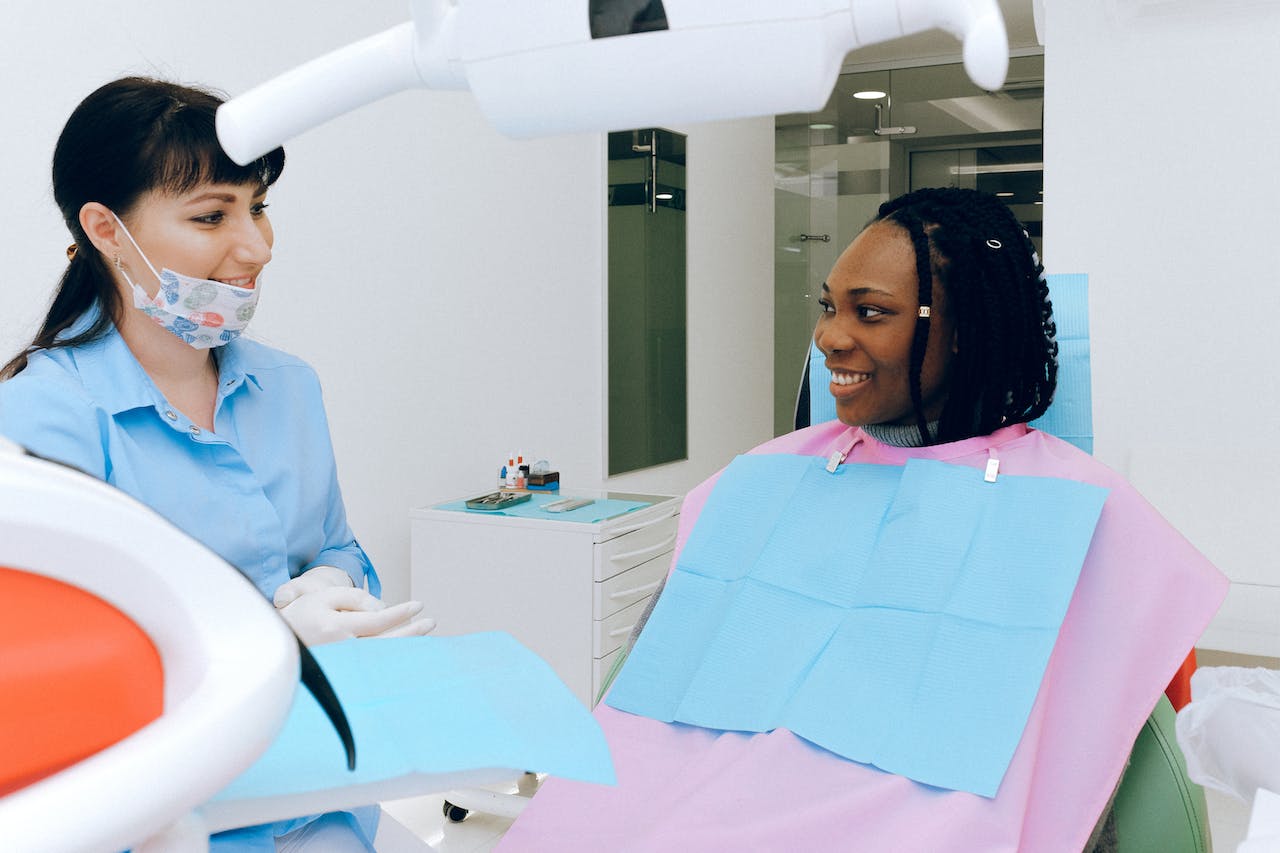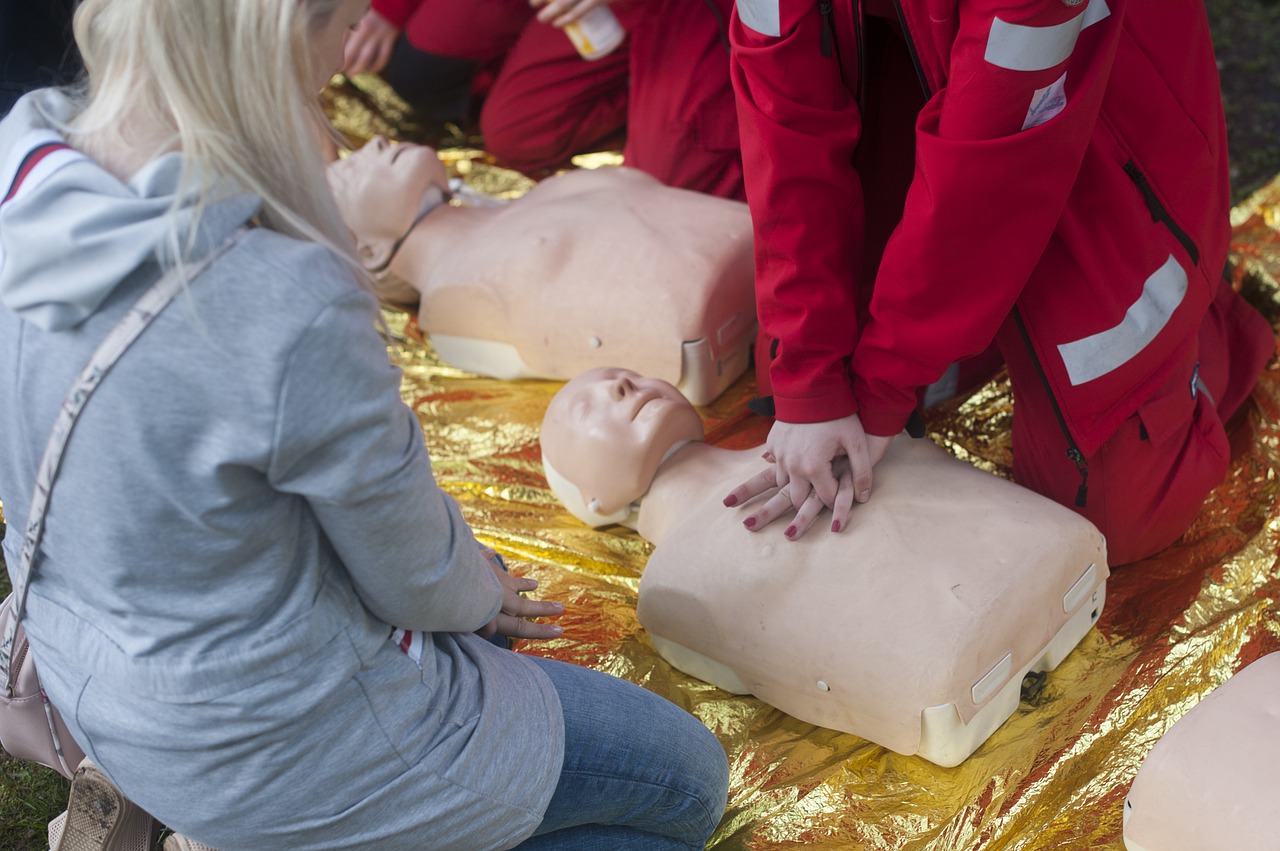How Nootropics Can Help with Stress and Anxiety Management
Stress and anxiety can take a toll on daily life, impacting focus, mood, and overall performance. Nootropics are gaining attention as tools that not only enhance cognition but also support emotional balance and resilience. For anyone considering these options, this comprehensive review of Nootropics Depot offers helpful insights into which supplements show promise in reducing stress and promoting calm clarity. By learning how certain compounds influence the brain’s response to pressure, individuals can better manage anxious thoughts while maintaining productivity. With mindful selection and consistent use, nootropics may play an important role in managing stress naturally and improving overall well-being.
Enhancing Mood and Emotional Stability
 Mood regulation is a critical factor in managing anxiety, and nootropics can play a role in stabilizing emotional well-being. Supplements like L-theanine, found in green tea, promote relaxation without drowsiness by influencing brain wave activity and increasing serotonin and dopamine levels. Others, such as Bacopa monnieri, have been linked to reduced anxiety symptoms and improved mood over time. By supporting neurotransmitters linked to positivity and calmness, nootropics can help create a more stable emotional foundation.
Mood regulation is a critical factor in managing anxiety, and nootropics can play a role in stabilizing emotional well-being. Supplements like L-theanine, found in green tea, promote relaxation without drowsiness by influencing brain wave activity and increasing serotonin and dopamine levels. Others, such as Bacopa monnieri, have been linked to reduced anxiety symptoms and improved mood over time. By supporting neurotransmitters linked to positivity and calmness, nootropics can help create a more stable emotional foundation.
Supporting Stress Response
Nootropics can help regulate the body’s stress response by supporting neurotransmitter balance and hormonal regulation. Certain natural nootropics, such as Rhodiola rosea and Ashwagandha, are known for their adaptogenic properties. These compounds help the body adapt to stress, reducing cortisol levels and promoting a sense of calm. By minimizing the impact of stress hormones, nootropics can create a more balanced mental state, allowing individuals to handle challenges more effectively.
Supporting Sleep Quality

Poor sleep is both a cause and effect of stress and anxiety, creating a cycle that is difficult to break. Some nootropics, including magnesium and melatonin-related blends, promote restful sleep by calming the nervous system. Improved sleep quality directly enhances the ability to manage stress and reduces the likelihood of heightened anxiety during the day. By supporting restorative rest, nootropics can make it easier to maintain resilience in the face of daily challenges.
Improving Cognitive Clarity Under Pressure
Stress and anxiety often impair concentration and decision-making. Nootropics can help by promoting mental clarity and reducing the cognitive fatigue that comes with heightened stress levels. Compounds like GABA (gamma-aminobutyric acid) and phosphatidylserine are known to support calm focus, allowing individuals to think clearly even in high-pressure situations. This cognitive support ensures that anxiety does not overwhelm the ability to perform daily tasks efficiently.
Safe and Balanced Use
 While nootropics can provide benefits in stress and anxiety management, safe usage is essential. Consulting with a healthcare professional before starting supplementation ensures that chosen nootropics are suitable and do not interact with existing medications. Pairing nootropic use with lifestyle changes such as mindfulness, regular exercise, and a balanced diet creates the most effective results. A holistic approach ensures that supplements complement rather than replace essential wellness practices.
While nootropics can provide benefits in stress and anxiety management, safe usage is essential. Consulting with a healthcare professional before starting supplementation ensures that chosen nootropics are suitable and do not interact with existing medications. Pairing nootropic use with lifestyle changes such as mindfulness, regular exercise, and a balanced diet creates the most effective results. A holistic approach ensures that supplements complement rather than replace essential wellness practices.
Nootropics offer valuable support for individuals dealing with stress and anxiety by promoting calm, stabilizing mood, enhancing focus, and improving sleep. When integrated thoughtfully into a routine, these supplements can strengthen resilience and help manage the pressures of modern life more effectively. By choosing the right nootropics and using them safely, individuals can create a healthier balance between cognitive performance and emotional well-being.…
Read More


 Muscle health in wrestling goes beyond building strength. Wrestlers use their muscles in extreme, often unnatural ways. Holding awkward positions or resisting an opponent’s force can lead to overuse. Tightness, imbalances, and microtears are common. Recovery windows are often short during a season, and muscles don’t always get time to fully heal. Over time, this can lead to reduced flexibility, chronic soreness, and even nerve impingement. It’s a physical toll that follows many athletes long after their final match.
Muscle health in wrestling goes beyond building strength. Wrestlers use their muscles in extreme, often unnatural ways. Holding awkward positions or resisting an opponent’s force can lead to overuse. Tightness, imbalances, and microtears are common. Recovery windows are often short during a season, and muscles don’t always get time to fully heal. Over time, this can lead to reduced flexibility, chronic soreness, and even nerve impingement. It’s a physical toll that follows many athletes long after their final match.









 The first cause of hemorrhoids is pregnancy. This is due to the increase in pressure that occurs in the pelvic area when a woman is pregnant. Pregnancy’s extra weight and strain can lead to swelling in veins around the rectum, resulting in painful or itchy hemorrhoid flare-ups. Many pregnant women can experience this issue, especially during their last trimester.
The first cause of hemorrhoids is pregnancy. This is due to the increase in pressure that occurs in the pelvic area when a woman is pregnant. Pregnancy’s extra weight and strain can lead to swelling in veins around the rectum, resulting in painful or itchy hemorrhoid flare-ups. Many pregnant women can experience this issue, especially during their last trimester. The third cause of hemorrhoids is chronic constipation, which a variety of things can cause. In some cases, it may be due to an underlying medical condition or medications prescribed to treat another issue. Constipation places strain and pressure on the rectal veins when trying to pass stool, which can lead to hemorrhoids. It would be best if you increased your fiber intake to help reduce constipation and the risk of hemorrhoids. Additionally, drinking more fluids, exercising regularly, and avoiding sitting or standing for long periods of time can also be beneficial in relieving constipation symptoms. If your work involves using a computer the whole day, you should take the time to move around and stretch every hour.
The third cause of hemorrhoids is chronic constipation, which a variety of things can cause. In some cases, it may be due to an underlying medical condition or medications prescribed to treat another issue. Constipation places strain and pressure on the rectal veins when trying to pass stool, which can lead to hemorrhoids. It would be best if you increased your fiber intake to help reduce constipation and the risk of hemorrhoids. Additionally, drinking more fluids, exercising regularly, and avoiding sitting or standing for long periods of time can also be beneficial in relieving constipation symptoms. If your work involves using a computer the whole day, you should take the time to move around and stretch every hour.
 Before you start sending any patient information via text message, you need to get permission from the patient first. This means you must have a signed HIPAA release form on file for each patient who has permitted you to send them text messages. Without this signed release form, you are not allowed to send any PHI via text message.
Before you start sending any patient information via text message, you need to get permission from the patient first. This means you must have a signed HIPAA release form on file for each patient who has permitted you to send them text messages. Without this signed release form, you are not allowed to send any PHI via text message. If your phone is ever lost or stolen, you need to be able to erase all of the Data on it. This includes any text messages that may contain PHI. To do this, you should have remote wiping software installed on your phone. This way, if your phone is ever lost or stolen, you can erase all the Data remotely. By following these rules, you can ensure that your text messages are HIPAA compliant.
If your phone is ever lost or stolen, you need to be able to erase all of the Data on it. This includes any text messages that may contain PHI. To do this, you should have remote wiping software installed on your phone. This way, if your phone is ever lost or stolen, you can erase all the Data remotely. By following these rules, you can ensure that your text messages are HIPAA compliant.
 Before you choose any website, you must take the time to consider what your needs and priorities are. This will help you select a website that is right for you. Each person’s situation is different, so not all of these may be relevant to you. Not every website will have all of these features, but it’s important to know what you’re looking for before you start looking.
Before you choose any website, you must take the time to consider what your needs and priorities are. This will help you select a website that is right for you. Each person’s situation is different, so not all of these may be relevant to you. Not every website will have all of these features, but it’s important to know what you’re looking for before you start looking. It would help if you also considered how much information the site provides. Some people want to know every detail about their condition, while others want to know the basic facts. If you want more detailed information, you’ll need to find a site that offers this type of content. However, if you’re looking for general information, you can probably find what you need on a less detailed site.
It would help if you also considered how much information the site provides. Some people want to know every detail about their condition, while others want to know the basic facts. If you want more detailed information, you’ll need to find a site that offers this type of content. However, if you’re looking for general information, you can probably find what you need on a less detailed site. It would help if you also considered whether you want a website tailored to your specific country or region of the world. This can be important if you are looking for information on health care and treatments that are specific to your area.
It would help if you also considered whether you want a website tailored to your specific country or region of the world. This can be important if you are looking for information on health care and treatments that are specific to your area.
 So, what is the Advanced Cardiovascular Life Support? It’s a course designed to teach healthcare professionals to diagnose and treat cardiovascular emergencies. It includes cardiac arrest, respiratory arrests, shock, pulmonary embolism, or acute coronary syndrome. It works as an advanced step in cardiopulmonary resuscitation (CPR) and emergency cardiovascular care. The goal of ACLS is to improve the survival rate for patients with cardiovascular emergencies.
So, what is the Advanced Cardiovascular Life Support? It’s a course designed to teach healthcare professionals to diagnose and treat cardiovascular emergencies. It includes cardiac arrest, respiratory arrests, shock, pulmonary embolism, or acute coronary syndrome. It works as an advanced step in cardiopulmonary resuscitation (CPR) and emergency cardiovascular care. The goal of ACLS is to improve the survival rate for patients with cardiovascular emergencies. Many of us hard-working adults are troubled when it comes to sex because of various reasons, such as being too busy, not in the mood, tiredness, and drowsiness, or having zero interest. It would not surprise us to feel like one of the examples mentioned above because lack of testosterone can do that to our bodies and minds. Having frequent sexual intercourse can boost our energy levels, refresh our minds, and enhance our heart health, and yet we can’t seem to reach an erection, orgasm, or sexual pleasure if we don’t have enough testosterone in our cells. So, why not take testosterone supplements to regain your vitality?
Many of us hard-working adults are troubled when it comes to sex because of various reasons, such as being too busy, not in the mood, tiredness, and drowsiness, or having zero interest. It would not surprise us to feel like one of the examples mentioned above because lack of testosterone can do that to our bodies and minds. Having frequent sexual intercourse can boost our energy levels, refresh our minds, and enhance our heart health, and yet we can’t seem to reach an erection, orgasm, or sexual pleasure if we don’t have enough testosterone in our cells. So, why not take testosterone supplements to regain your vitality?

 The ketogenic state is very valuable for controlling insulin levels in the body. Insulin is one of the triggers for food cravings, especially for sugar satiety, so limiting insulin levels to a healthy level is one of the most important elements of losing weight.
The ketogenic state is very valuable for controlling insulin levels in the body. Insulin is one of the triggers for food cravings, especially for sugar satiety, so limiting insulin levels to a healthy level is one of the most important elements of losing weight.

 Inorganic compounds are not controlled in skincare products. Some components might even be left off the record, and lots of goods aren’t tested for safety. Phthalates and parabens are a couple of the greatest known endocrine disruptors. When you utilize more organic materials, it’s easier for your body to take them and enhance them.
Inorganic compounds are not controlled in skincare products. Some components might even be left off the record, and lots of goods aren’t tested for safety. Phthalates and parabens are a couple of the greatest known endocrine disruptors. When you utilize more organic materials, it’s easier for your body to take them and enhance them.

 If you are into football, acquiring a fantastic vertical bounce will allow you to be an enormous broad recipient since it’s probably going to jump ball moves past a cautious back. Volleyball players indeed require reliable vertical bounces for murders and squares during a match. A considerable vertical bounce isn’t just about hopping higher.
If you are into football, acquiring a fantastic vertical bounce will allow you to be an enormous broad recipient since it’s probably going to jump ball moves past a cautious back. Volleyball players indeed require reliable vertical bounces for murders and squares during a match. A considerable vertical bounce isn’t just about hopping higher.

 Ordinarily, we’re trying to find a physician who’s friendly with us. A friend just like a physician isn’t a terrible idea. The patient-doctor connection needs to be just like a coach-athlete relationship. To be able to find the best outcome, the athlete must honor and comply with his or her coach. In precisely the same manner, physicians should be just like a trainer, whom a patient pays attention, respect, and follows his command.
Ordinarily, we’re trying to find a physician who’s friendly with us. A friend just like a physician isn’t a terrible idea. The patient-doctor connection needs to be just like a coach-athlete relationship. To be able to find the best outcome, the athlete must honor and comply with his or her coach. In precisely the same manner, physicians should be just like a trainer, whom a patient pays attention, respect, and follows his command.
 Some diseases such as diabetes and cardiovascular system problems can inhibit blood circulation to the penis, which is important for erections. To correct erectile dysfunction, blood circulation to the penis must be improved and testosterone levels must be increased. It begins to decrease by 10% every decade after age 30. Some men experience a decrease of more than 10 percent and believe it has more profound effects.
Some diseases such as diabetes and cardiovascular system problems can inhibit blood circulation to the penis, which is important for erections. To correct erectile dysfunction, blood circulation to the penis must be improved and testosterone levels must be increased. It begins to decrease by 10% every decade after age 30. Some men experience a decrease of more than 10 percent and believe it has more profound effects. In addition to a fantastic diet and training, what can really help are several natural pills containing plant and herbal extracts like ginseng, ginseng, muira pauma, catuaba, hawthorn, etc. that increase blood circulation in the penis so you can have rock hard erections. Many of the plant extracts have been used as aphrodisiacs for centuries. Also, some of these pills include access to masculinity training programs.
In addition to a fantastic diet and training, what can really help are several natural pills containing plant and herbal extracts like ginseng, ginseng, muira pauma, catuaba, hawthorn, etc. that increase blood circulation in the penis so you can have rock hard erections. Many of the plant extracts have been used as aphrodisiacs for centuries. Also, some of these pills include access to masculinity training programs.
 In addition to the premise of being able to train my body to use fat as fuel, I was also attracted by the promise of reducing hunger and cravings. As anyone who has experimented with dieting knows, cravings are often difficult to manage, and if willpower wanes at the wrong time, it is not difficult to eliminate a week of careful eating with a single binge.
In addition to the premise of being able to train my body to use fat as fuel, I was also attracted by the promise of reducing hunger and cravings. As anyone who has experimented with dieting knows, cravings are often difficult to manage, and if willpower wanes at the wrong time, it is not difficult to eliminate a week of careful eating with a single binge.

 The fast-paced world we live in brings with it a significant amount of anxiety and restlessness. As a result, this has a very detrimental effect on our physical and mental well-being. Walking your dog can significantly relieve these stressful circumstances and is an excellent self-care liveliness. Interestingly, studies have shown that walking with your petal increases thyroid and oxytocin levels and decreases cortisol levels, a stress-producing hormone. Many dogs make exceptional therapy animals for owners with mental illness because of their friendly and caring temperament, which has a calming effect. When the above factors are combined with the endorphin-generating walking puppies activity, you get a calmer, less stressed person as an owner.
The fast-paced world we live in brings with it a significant amount of anxiety and restlessness. As a result, this has a very detrimental effect on our physical and mental well-being. Walking your dog can significantly relieve these stressful circumstances and is an excellent self-care liveliness. Interestingly, studies have shown that walking with your petal increases thyroid and oxytocin levels and decreases cortisol levels, a stress-producing hormone. Many dogs make exceptional therapy animals for owners with mental illness because of their friendly and caring temperament, which has a calming effect. When the above factors are combined with the endorphin-generating walking puppies activity, you get a calmer, less stressed person as an owner. The question that comes to mind is, how can I house a better-behaved dog? The answer is quite simple; a walk with your puppy not only provides an opportunity to help your pet burn off the excess energy they have built up, but it also helps their owner find learning moments for their pet. A frustrated, failed puppy can cause chaos in a home, which isn’t suitable for anyone. Walking your dog can reduce anxiety and destructive dog behavior, making keeping your dog a more enjoyable experience. So, he behaves better, too!…
The question that comes to mind is, how can I house a better-behaved dog? The answer is quite simple; a walk with your puppy not only provides an opportunity to help your pet burn off the excess energy they have built up, but it also helps their owner find learning moments for their pet. A frustrated, failed puppy can cause chaos in a home, which isn’t suitable for anyone. Walking your dog can reduce anxiety and destructive dog behavior, making keeping your dog a more enjoyable experience. So, he behaves better, too!…
 Among many types of vitamins, the best ones for losing weight come from the variety of vitamin B. Suppose you are lack of the vitamin B supplies, it will affect the metabolism and lead to weight gain. Therefore, you have to put enough vitamin B2 nutrition in your diet plan.
Among many types of vitamins, the best ones for losing weight come from the variety of vitamin B. Suppose you are lack of the vitamin B supplies, it will affect the metabolism and lead to weight gain. Therefore, you have to put enough vitamin B2 nutrition in your diet plan.  In addition to supporting thyroid function, vitamin B3 helps keep blood sugar levels safe. It doesn’t directly affect weight loss or gain. However, it is beneficial to control the hunger you feel at any given time. Low blood sugar levels can also make you feel irritable and unhappy. You can consume salmon and oats for maintaining vitamin B3. Likewise, cheese and poultry are good sources of vitamin B3.
In addition to supporting thyroid function, vitamin B3 helps keep blood sugar levels safe. It doesn’t directly affect weight loss or gain. However, it is beneficial to control the hunger you feel at any given time. Low blood sugar levels can also make you feel irritable and unhappy. You can consume salmon and oats for maintaining vitamin B3. Likewise, cheese and poultry are good sources of vitamin B3.
 Having this adorable dog mate in the house can reduce stress, lower blood pressure, and improve immunity. In other words, they are great stress reducers! After a long and stressful day at work, who wouldn’t need to come home to a company that welcomes you to the door and shows you, unconditional love, again and again? It is this series of love and affection that has encouraged many to adopt a stress-free lifestyle.
Having this adorable dog mate in the house can reduce stress, lower blood pressure, and improve immunity. In other words, they are great stress reducers! After a long and stressful day at work, who wouldn’t need to come home to a company that welcomes you to the door and shows you, unconditional love, again and again? It is this series of love and affection that has encouraged many to adopt a stress-free lifestyle.

 The small size fits perfectly with the colostomy bag or the inside pocket of a jacket. Just take the used pop-up and another one in a few minutes. For example, if you travel with your family, you will have a quick turn when you need it. Yes, another inmate – your spouse or children may want to put up with a little odor nuisance, but they will know.
The small size fits perfectly with the colostomy bag or the inside pocket of a jacket. Just take the used pop-up and another one in a few minutes. For example, if you travel with your family, you will have a quick turn when you need it. Yes, another inmate – your spouse or children may want to put up with a little odor nuisance, but they will know.


 On the other hand, climate change is the proverb currently favored by scientists because it includes the increase in the average global temperature of the Earth and, above all, the climatic influences due to this increase. Even a small rise in global temperature could have worrying consequences such as rising sea levels, population movements, food supply disruptions, floods, and negative health effects. Indeed, human health is the main burden of the consequences of climate change.
On the other hand, climate change is the proverb currently favored by scientists because it includes the increase in the average global temperature of the Earth and, above all, the climatic influences due to this increase. Even a small rise in global temperature could have worrying consequences such as rising sea levels, population movements, food supply disruptions, floods, and negative health effects. Indeed, human health is the main burden of the consequences of climate change. Climate change affects freshwater and marine sources to increase human exposure to waterborne contaminants that cause disease. Water-related diseases can also be caused by toxins produced by dangerous algae and chemicals introduced into water sources through individual activities.
Climate change affects freshwater and marine sources to increase human exposure to waterborne contaminants that cause disease. Water-related diseases can also be caused by toxins produced by dangerous algae and chemicals introduced into water sources through individual activities.
 Would it have the option to be to take a rest from your clamoring day? People smoke for a comparative inspiration driving why lushes drink as it is a second or two escape, an opportunity to release up. Various individuals don’t stop
Would it have the option to be to take a rest from your clamoring day? People smoke for a comparative inspiration driving why lushes drink as it is a second or two escape, an opportunity to release up. Various individuals don’t stop  For some individuals, it truly can assist with settling on a date later on, no longer than half a month previously, which you could focus on your Quit Date. Many individuals with a date in your brain to stop give them a sentiment of conclusion. For ideal outcomes, consider picking a date that has an extraordinary noteworthiness for you by and by, similar to a birthday or a commemoration. In any case, avoid making New Year’s your Quit Date as people will, in general, load themselves with assumptions regarding this zone of the whole year.
For some individuals, it truly can assist with settling on a date later on, no longer than half a month previously, which you could focus on your Quit Date. Many individuals with a date in your brain to stop give them a sentiment of conclusion. For ideal outcomes, consider picking a date that has an extraordinary noteworthiness for you by and by, similar to a birthday or a commemoration. In any case, avoid making New Year’s your Quit Date as people will, in general, load themselves with assumptions regarding this zone of the whole year.
 If the costs seem too low, it may not be the deal they appear in the end. If the clinic saves on everything, you may need arthroscopic surgery, costing much more money and time to repair. Therefore, cheap liposuction could be quite expensive in the long term. The best cosmetic surgeons on the market will show you some photos before and after previous patients’ pictures. They will explain their decisions in detail and have the opportunity to answer your questions.
If the costs seem too low, it may not be the deal they appear in the end. If the clinic saves on everything, you may need arthroscopic surgery, costing much more money and time to repair. Therefore, cheap liposuction could be quite expensive in the long term. The best cosmetic surgeons on the market will show you some photos before and after previous patients’ pictures. They will explain their decisions in detail and have the opportunity to answer your questions. Fortunately, there is a very low complication rate for the operation. Every year tens of thousands of people undergo surgery with little or no problem. However, anyone considering surgery should know the benefits and risks of anesthesia. I understand that every surgery involves risks, but how can I learn more to make an informed decision? While skin loss after waxing is almost always temporary, some people who are not helpful may still find skin discoloration that must be controlled in the treated areas. Irregularities of the contour after surgery, such as depression or a part of the skin, can cause several patients. Still, treatments are usually available to alleviate these problems if they occur.…
Fortunately, there is a very low complication rate for the operation. Every year tens of thousands of people undergo surgery with little or no problem. However, anyone considering surgery should know the benefits and risks of anesthesia. I understand that every surgery involves risks, but how can I learn more to make an informed decision? While skin loss after waxing is almost always temporary, some people who are not helpful may still find skin discoloration that must be controlled in the treated areas. Irregularities of the contour after surgery, such as depression or a part of the skin, can cause several patients. Still, treatments are usually available to alleviate these problems if they occur.…